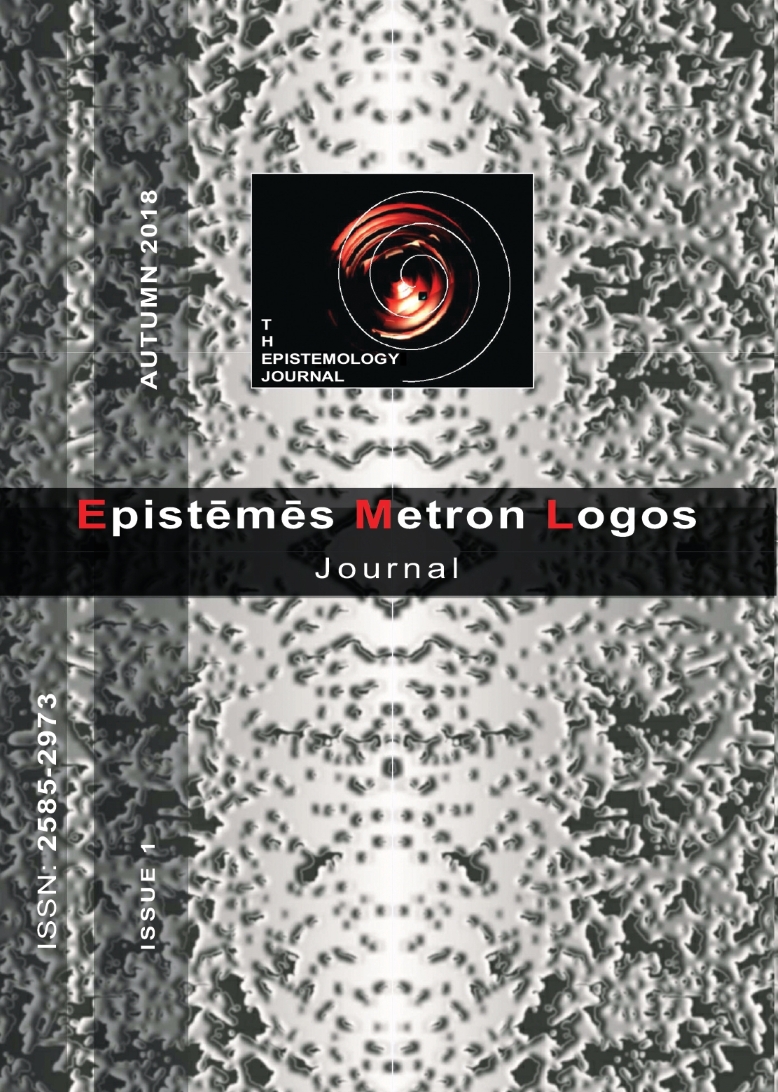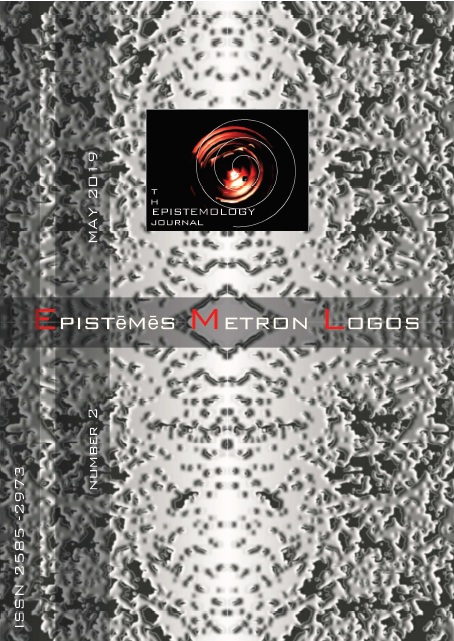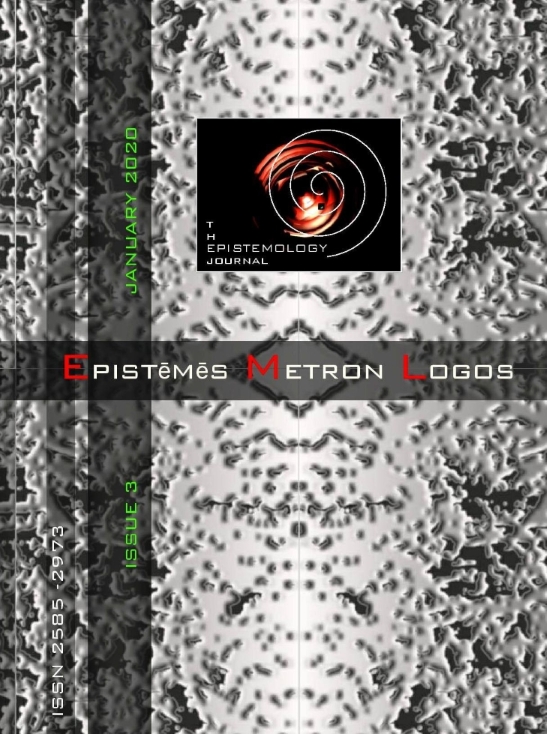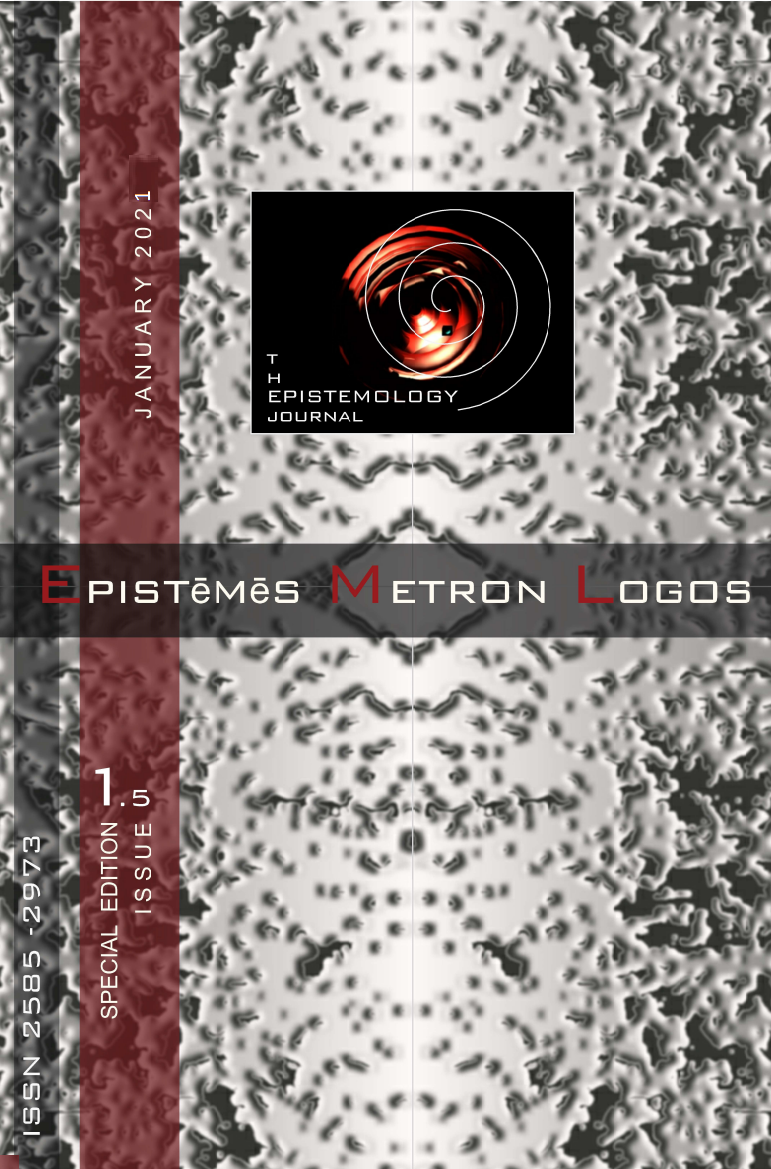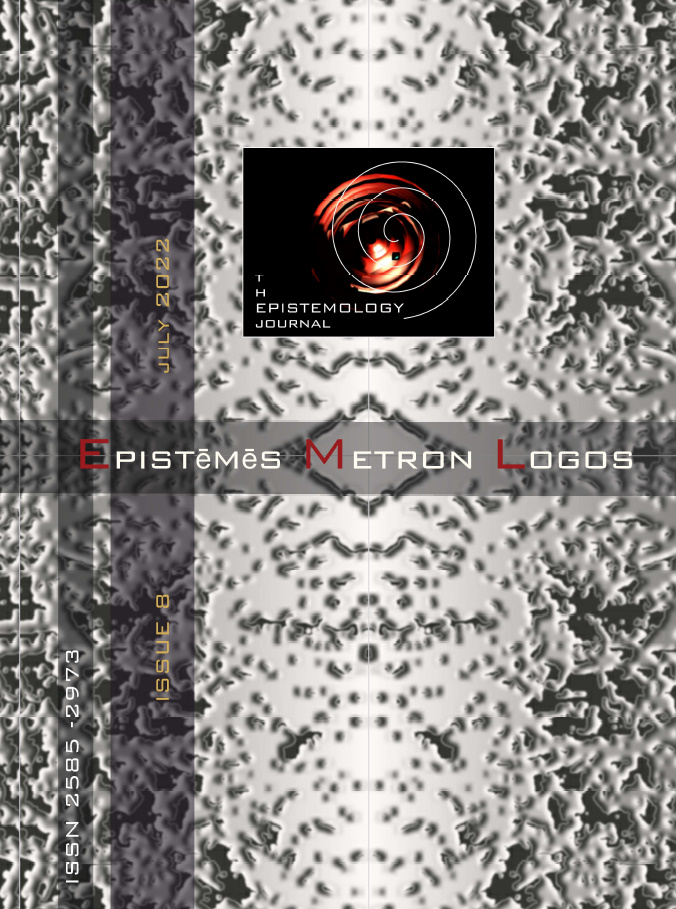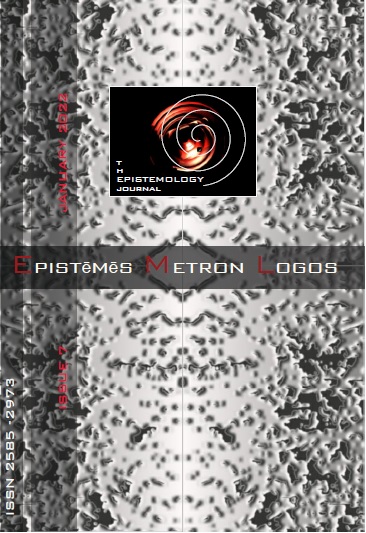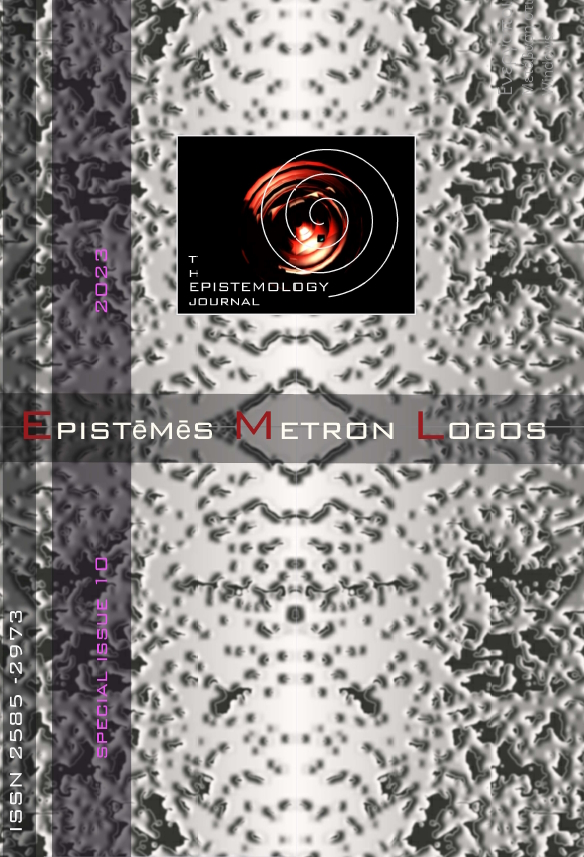On the Methodology of the Analytic Method: Historical Account, Epistemological Suggestions, Stages
Abstract
In this paper we attempt a good unearthing, sound tackling and effective pointing out of the critical key features permeating one of the two cornerstones supporting the total coordination and interplay underlying the complex epistemonic and scientific method: and that would be the constituent methodology concisely known under the cover name “analytic method”. In this attempt, however, it becomes evident very soon that the direct similarities, reciprocities and complementarities to the other cornerstone, concisely known as “abstractive method”, must also be laid out concurrently; the two share the same needs and behaviours, while they must also be mutually disambiguated and framed in inner consistencies and mutual contrast, to assert proper theoretical coverage, fruitful application and mutual impermeability overall.
Thus, both of them end up being discussed in parallel. To that end, simple and intuitively appealing proposals are sought, expressed and projected, regarding their key attributes, range and boundaries, both generally and especially in between them; their defining points and most essential requirements are sought out and expressed, their functional standards are suggested and the stages of its application are prescribed, according to a shadowy yet rigorous gradual breakup and assembling procedure derived from elementary combinatorics and set theory. All this gets illustrated in the schematic stages to be pursued in two relevant enlightening analytic examples, chosen so as to also partake of a crucial share of an abstractive aspect.
Two relevant issues are touched upon along the way in the vein of the present tone of quest, namely those concerning basic prerequisites of logic employed and the confusion and effective double-talk underlying the term “theory” (vs. “theories”) and the consequent term-induced ambiguity in the concepts. On the subject, analysis is the breakup of an “entity” into its “components” and synthesis is its retroactive operation, or “return”, from “components” to the “entity”. Similarly, “abstraction” is the course from an entity to a nesting of successive general categories, and “structure” is the other way around from more general categories towards smaller contained assemblages of entities, each uniformly exhibiting “partial manifestations” of the said categorical feature.
The semantic context and its set-theoretical implications are of paramount importance here. What is definitively taken as a “unity”, in each case, is a matter of choice, and of mutual and binding agreement among the parties conducting the study and its discussion. Beyond that, figuratively speaking, the analytic method concerns “anatomical autopsies” digging into such unities constituting elements or members of sets, whereas the abstractive method concerns attributes connecting sets of such “unities” and their nested supersets and subsets. We close by sketching the stage-by-stage application as illustrated in two case-studies: one from Cultural Studies, regarding a model, focusing on the primitive ternary ritual of the performing arts [ΚΛΜ], discussed complete with some key side issues, and accompanied by considerations on the triple of the material arts [ΧΨΩ], and then one from Bioethics regarding all possible partial and combinatorial constituents in consent models.
Article Details
- Come citare
-
Papageorgiou, K., & Lekkas, D. E. (2018). On the Methodology of the Analytic Method: Historical Account, Epistemological Suggestions, Stages. Epistēmēs Metron Logos, (1), 70–89. https://doi.org/10.12681/eml.19244
- Fascicolo
- N. 1 (2018)
- Sezione
- Publishing partner

Questo lavoro è fornito con la licenza Creative Commons Attribuzione - Non commerciale 4.0 Internazionale.
Authors who publish with this journal agree to the following terms:
Authors retain copyright and grant the journal right of first publication with the work simultaneously licensed under a Creative Commons Attribution Non-Commercial License that allows others to share the work with an acknowledgement of the work's authorship and initial publication in this journal.
Authors are able to enter into separate, additional contractual arrangements for the non-exclusive distribution of the journal's published version of the work (e.g. post it to an institutional repository or publish it in a book), with an acknowledgement of its initial publication in this journal.
Authors are permitted and encouraged to post their work online (preferably in institutional repositories or on their website) prior to and during the submission process, as it can lead to productive exchanges, as well as earlier and greater citation of published work.

